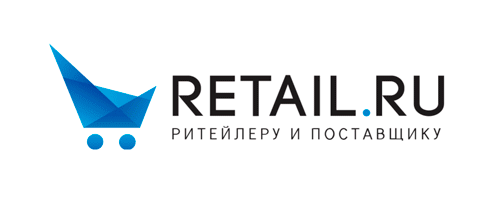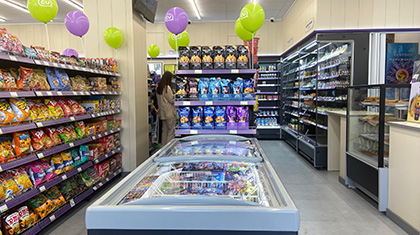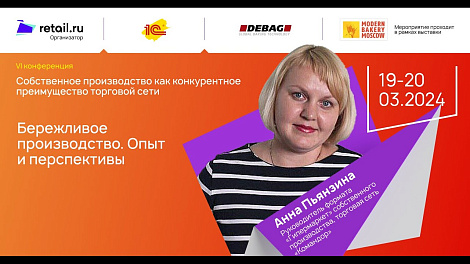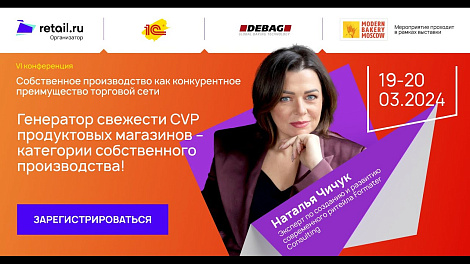In the period August − November 2008, according to Nielsen, total volume sales of packaged Food and Beverages in Russia declined by 0,3% in comparison to April-July 2008, and Food Index lost almost by five (4,8) points. This affected the results of the total year on the market which grew less than by 5% (4.8) in volume.
”In 2009 to keep growing even on the level of 2008 will not be easy for the Russian Food and Beverages market”, said Dwight Watson, Managing Director, Nielsen Russia. “The latest Nielsen Consumer Confidence Index dropped to 82 in Russia — down six points since November 2008".
The Nielsen Consumer Confidence Index is developed based on consumers’ confidence in the job market, status of their personal finances and readiness to spend. The latest Index for Russia was conducted in the period February 16-20, 2008 among regular internet users as part of the second wave of Nielsen’s special research project ‘Russians Through Crisis’ which is aimed at gauging confidence level and spending intentions of Russian consumers in the current economic situation.
The first slump in consumer confidence in Russia was registered in November 2008 when the Index dropped by 16 points. In February 2009 Russia sank even deeper into pessimism − with another 6 point drop in Consumer Confidence Index (Pic.2). Economic recession, growing unemployment, high inflation, devaluation of national currency and the burden of credits borrowed with easiness during the “optimistic” years are taking their toll on consumers.
Keeping one’s job is one of the major consumers’ concerns in Russia today. The data of Nielsen’s online survey conducted within the framework of ‘Russians through Crisis’ study show that the number of respondents expecting their job prospects to be good or excellent for the next 12 months dropped by 2.5 times − from 50% in September 2008 down to 20% in February 2009. Almost every fifth (18%) claimed their prospects on the job market were bad; it is 3 times more than only half a year ago. The total number of those who are pessimistic about their jobs in Russia now has grown up to 75% (those who said their job prospects were not so good or bad).
It should be mentioned that the lowest single drop of consumer optimism in regard to job prospects was seen in November 2008. Further decline in February 2008 was not so considerable.
Consumers’ perception of their personal finances changed in similar way. Less than half (47%) of Russian online consumers were confident in their finances in February − vs. 51% in November 2008.
But when it comes down to readiness to spend, it seems that now Russians are tightening their belts in earnest after indulgence of long New Year holidays. In February 2009, 47% of respondents said that the next 12 month were not very good time to buy things they want or need, and 20% said it was quite bad. While in November 2008 41% of Russian online consumers were sure that next 12 months were good or excellent time for shopping, in February 2009 this number dropped down to 30% − the largest decline in readiness to spend registered by Nielsen in the last few years in Russia. At the same time the number on those who think the next 12 months as not very good or bad time to spend money grew by 20% in comparison with November 2008.
Russian Food and Beverages Market 2008: Consumer Trends in Recession
Taking into account the current economic situation and growing consumer pessimism, manufacturers might be reluctant to invest into new product development. But Nielsen BASES studies show that consumer habits are slow to change and their purchase interest in everyday goods and innovations in this segment remain stable over time regardless of macroeconomic conditions.
The distribution built for the new product might be complicated now as more Russian retailers are switching to optimization of assortment. According to Nielsen’s research ‘Distribution Channels Struggling Through Crisis’ aimed at studying the impact of crisis on purchasing behaviour of Russian retailers, ~ 17% or respondents from traditional trade claimed to cut the assortment. The good news is that the decrease in assortment is not considerable yet: 15% on the average. The most popular anti-crisis strategy that is employed by retailers to remain affective in the current situation is stock reduction.
“Resist the impulse to pull back on innovations, work on your distribution, − these are the key clues on how to work on the Russian market of Packaged Food and Beverages when times are tight”, said Dwight Watson.
When consumers’ purchasing power is declining, Value becomes the key purchasing trigger for shoppers. But that does not mean that Convenience, Freshness&Variety and Health&Beauty no longer motivate consumers. Now these factors have a new meaning. Innovations which follow the change in consumers’ priorities and answer their new needs will help manufacturers and retailers to win consumer loyalty and come stronger after the recessionary times.
According to Nielsen’s Russian Packaged Food & Beverages Market Study, the value growth of eight out of ten fastest growing categories was driven by other factors apart from inflation.
Thus, Drinking Yoghurt with 1% volume and 30% value growth (December 2007-November 2008 vs. the same period the year before) is stimulated by convenient single-served packages and healthy functional yoghurts.
The retail sales of Culinary – Soups, Bouillons, Instant Meals, Seasonings, Noodles, Soup and Meal Makers − showed steady growth (+8% in volume) reaffirming the idea that time-saving and convenient products are still attractive for the Russian consumers.
Value sales growth of Salted Snacks was driven by package down-sizing which was seen in the last months of 2008.
Premium segment demonstrated positive dynamics in a number of Food categories even in post-crisis period of 2008 – in Chocolate, Coffee and some others. But with further decline in purchasing power the down-trading will become more apparent trend and will result in noticeable “polarization” of the market: while premium price segment will remain stable, the middle segment will be loosing its share due to faster growth of economy segment.
Interestingly, while the retail sales of traditional Dairy Products in Urban Russia were declining during the first three quarters of the year and total sales lost 7% in volume in 2008 (e.g. milk – by 7%, kefir – by 9%, curd − by 6%) and in Q4’2008 the situation in the segment began to change, and already in October-November 2008 the volume sales of milk started to grow.
“It is too early to say that consumers are switching to basic products, but this might become a steady trend if the affect of recession on consumer income becomes more perceptible,” − commented Dwight Watson.
About The Nielsen Company
The Nielsen Company is a global information and media company with leading market positions in marketing and consumer information, television and other media measurement, online intelligence, mobile measurement, trade shows and business publications (Billboard, The Hollywood Reporter, Adweek). The privately held company is active in more than 100 countries, with headquarters in New York, USA. For more information, please visit www.nielsen.com.
[1] Audited by Nielsen in Urban Russia (settlements with the more than 10.000 population)










